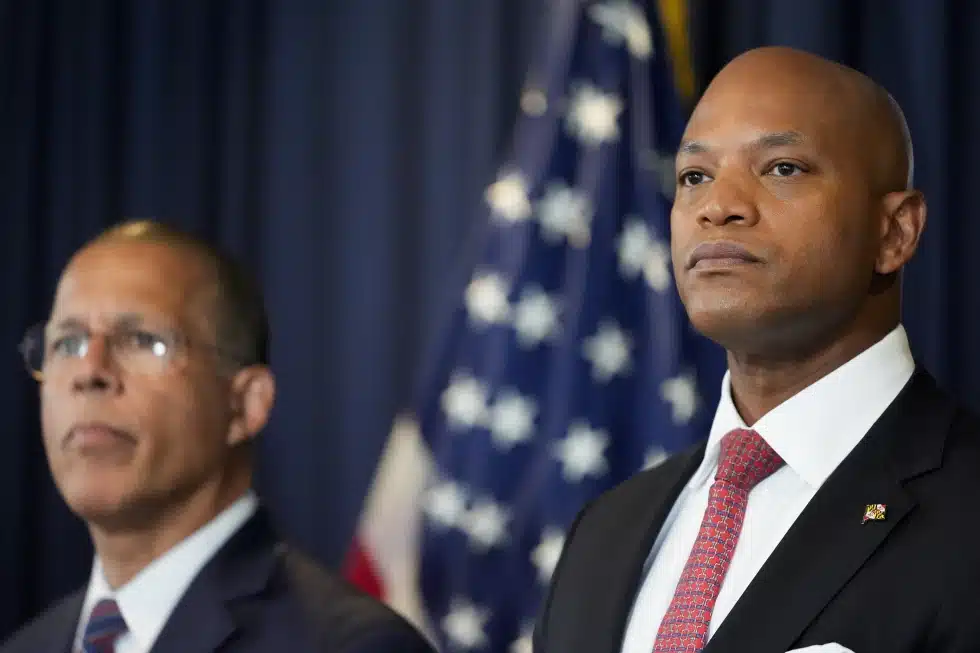
Maryland Governor Wes Moore’s recent announcement regarding the cancellation of over $13 million in probation fees and drug testing fees for parolees and those on administrative release supervision is a pivotal move for the state’s criminal justice system. The new policy impacts 6,715 individuals under the supervision of the Division of Parole and Probation, reducing a substantial financial burden that has weighed heavily on returning citizens.
For many, these fees—ranging from $40 to $50 per month for supervision, and additional charges for mandatory drug testing—have been a recurring financial strain. While the fees may seem nominal on their own, they accumulate over time, particularly for individuals struggling with limited employment prospects or financial instability after leaving incarceration. The cancellation of these debts is designed to offer relief and aid successful reintegration into society by lifting one of the many barriers faced by formerly incarcerated individuals.
Current Debts Only: The Limits of Relief
However, it is important to clarify that this debt relief applies only to current and future debts. Individuals who have already been referred to Maryland’s Central Collections Unit (CCU) for overdue payments will not see their debts canceled as part of this policy. The CCU is responsible for collecting state debts that have been outstanding for a significant period, and unfortunately, this particular announcement does not erase what is already owed through that system.
This distinction is crucial for those who may have already defaulted on their payments and whose debts have been turned over to collections. While the announcement offers substantial relief to those currently navigating the supervision system, it does not retroactively absolve individuals who have accumulated long-standing debts. In essence, it offers a fresh start for those currently under supervision but does not address all outstanding financial obligations for everyone who has passed through Maryland’s criminal justice system.
A Path to Better Reintegration
Despite this limitation, the cancellation of fees for current parolees represents a significant policy shift that aligns with Governor Moore’s broader vision for a fairer and more equitable justice system. This new approach recognizes that financial hardship often exacerbates the challenges individuals face when reentering society, making it harder for them to secure stable employment, housing, and reconnect with their communities. By lifting this specific financial burden, Maryland is encouraging smoother reentry processes and reducing the risk of recidivism.
Parolees and individuals under administrative release supervision will now be able to focus more on rebuilding their lives, rather than worrying about falling further into debt. Public Safety and Correctional Services Secretary Carolyn Scruggs emphasized that this move will directly improve reintegration efforts, reducing the stress and financial strain that often derail an individual’s progress toward a more stable and productive life.
Why Supervision Fees Were a Problem
For over a decade, Maryland required individuals on parole or probation to pay supervision fees, ranging from $40 to $50 a month. These fees were meant to offset the administrative costs of overseeing parolees and ensuring compliance with their conditions of release. While these fees were relatively small, they added up over time, creating significant debt for individuals already facing limited financial resources.
This burden was especially heavy on low-income individuals, many of whom already struggled with finding steady employment due to the stigma of a criminal record. Failure to pay these fees could result in serious consequences, including the possibility of being found in violation of the terms of their release. This added to the cycle of poverty and incarceration, as individuals prioritized these payments over essential needs such as rent, food, and transportation.
By eliminating these fees, Governor Moore is addressing one of the many systemic challenges that returning citizens face. This shift in policy is part of his administration’s broader effort to reduce barriers to successful reentry and promote a more rehabilitative approach to criminal justice. It reflects a growing recognition that punishment should not continue indefinitely after individuals have served their time and paid their debt to society.
Addressing the Disparities in Maryland’s Justice System
The cancellation of these fees also helps to address some of the racial and economic disparities in Maryland’s criminal justice system. Low-income individuals and communities of color have historically been overrepresented in the system, and they are disproportionately affected by financial penalties like supervision fees. By waiving these fees, Maryland is taking an important step toward creating a more equitable system that does not disproportionately penalize individuals based on their financial status.
This policy change also reflects the state’s commitment to reducing recidivism and encouraging successful reintegration. Governor Moore’s administration has made it clear that their goal is to break the cycle of incarceration, not perpetuate it. By easing the financial burden on returning citizens, Maryland is providing individuals with a real opportunity to rebuild their lives, reducing the likelihood that they will return to the criminal justice system.
The Road Ahead
While this announcement represents a major victory for justice reform advocates, it is just one step in the ongoing process of creating a more just and equitable criminal justice system in Maryland. There is still work to be done to address the debts of individuals who owe money to the Central Collections Unit and to continue reforming the broader system to support successful reentry.
For those impacted by this policy change, the cancellation of supervision and drug testing fees is a welcome relief that will allow them to focus on their future rather than their debt. It is a sign that Maryland is moving in the right direction, toward a criminal justice system that prioritizes rehabilitation, fairness, and the opportunity for a second chance.
